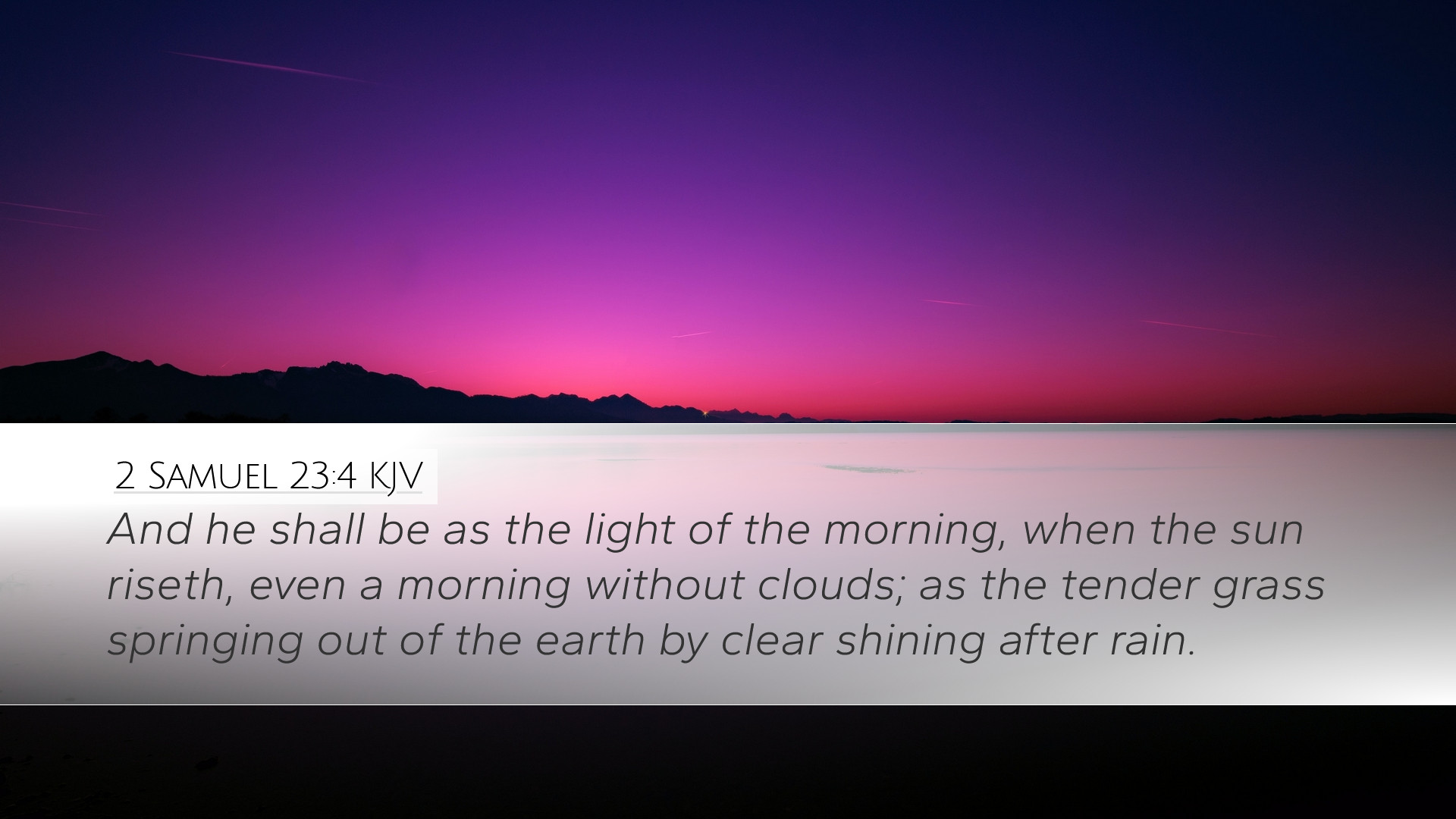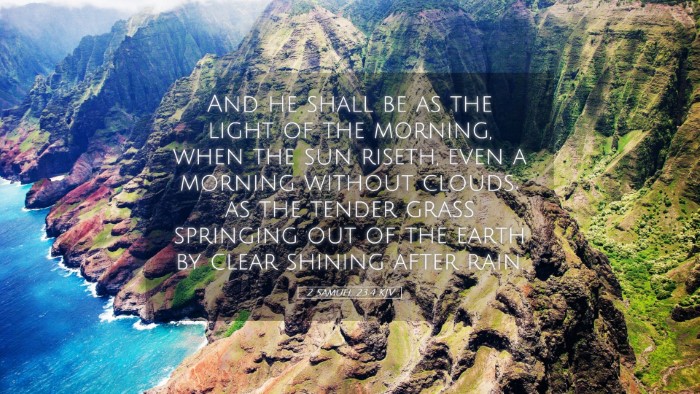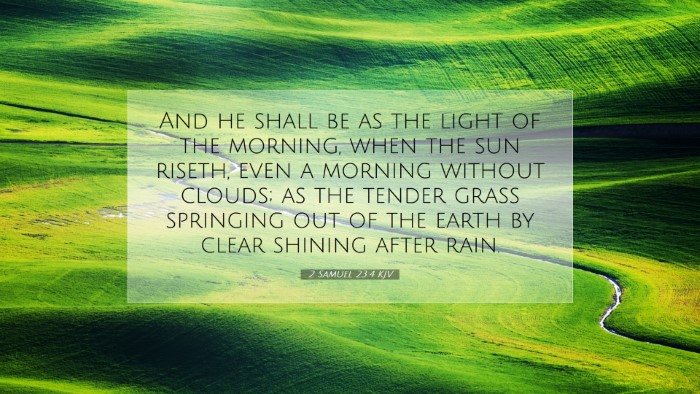Commentary on 2 Samuel 23:4
Bible Verse: "And he shall be as the light of the morning, when the sun riseth, even a morning without clouds; as the tender grass springing out of the earth by clear shining after rain." (2 Samuel 23:4, KJV)
Introduction
This verse forms part of a larger passage where David reflects on the nature of his kingship and the promises of God regarding leadership. It serves as a poetic representation of the ideal characteristics of a righteous ruler and highlights the blessings that God endows upon those who govern according to His will. In the context of biblical commentary, several prominent theologians have tackled this text, each providing rich insights into its theological and practical implications.
Exegesis and Theological Considerations
Understanding the Metaphor
The imagery in this verse is multifaceted. Matthew Henry emphasizes that the comparison of a righteous leader to "the light of the morning" signifies the hope and joy that God’s anointed brings to His people. Just as the morning light dispels darkness, so too does just leadership provide clarity and direction.
Albert Barnes expands on this metaphor by explaining that a morning without clouds represents a time of unimpeded joy and tranquility. Barnes argues that a successful leader shines brightly in the midst of challenges, much like the consistency of the sun that rises each day, providing warmth and assurance to those who follow.
The Significance of Righteous Rule
Adam Clarke points out that the pivotal role of a leader, as indicated in this verse, extends beyond mere governance; it embodies a divine responsibility. He asserts that a ruler should reflect God's light and grace in all their dealings, which in turn influences societal transformation. Clarke further notes that the "tender grass" symbolizes the gentle yet abundant blessings that flourish under righteous leadership.
The Character of David
This verse reflects David’s recognition of his role as God’s appointed leader. Matthew Henry notes that David, at the end of his life, recognizes both his failures and triumphs. The metaphor illustrates David's aspiration to emulate such a righteous standard, highlighting his humility in acknowledging his need for divine guidance.
Practical Applications for Leaders Today
- Reflecting Divine Light: Leaders are encouraged to embody the light of Christ in their actions and decisions, serving as an example of moral integrity.
- Bringing Clarity and Hope: Just as the morning sun brings clarity, leaders are tasked with providing guidance that alleviates confusion and fosters hope among their followers.
- Promoting Growth: The imagery of grass springing from the ground emphasizes that effective leadership encourages growth and flourishing in communities.
Historical Context
The backdrop of 2 Samuel highlights the consolidation of Israel under David's leadership. This period was marked by significant transitions, military confrontations, and spiritual reformations. Understanding the socio-political atmosphere of David's reign enriches the interpretation of this verse.
The Role of the Covenant
At its core, this verse embodies the covenantal relationship between God and His chosen ruler. Albert Barnes indicates that the blessings promised to David’s lineage are indicative of God's unconditional love and support. The assurance of a ruler akin to the morning light reflects the greater Messianic prophecy concerning Christ, who fulfills the ultimate promise of divine leadership.
Conclusion
2 Samuel 23:4 serves not only as poetic reflection on David’s kingship but also offers profound insights into the nature of divine rulership and the characteristics valued in leaders today. By examining this text through the lenses of acclaimed biblical commentators, we see the enduring relevance of its message for contemporary theological discourse. It calls us to uphold the light of righteousness in our own lives and communities, reminding us that with divine guidance, we can lead others into the flourishing that comes from faithfulness to God.


